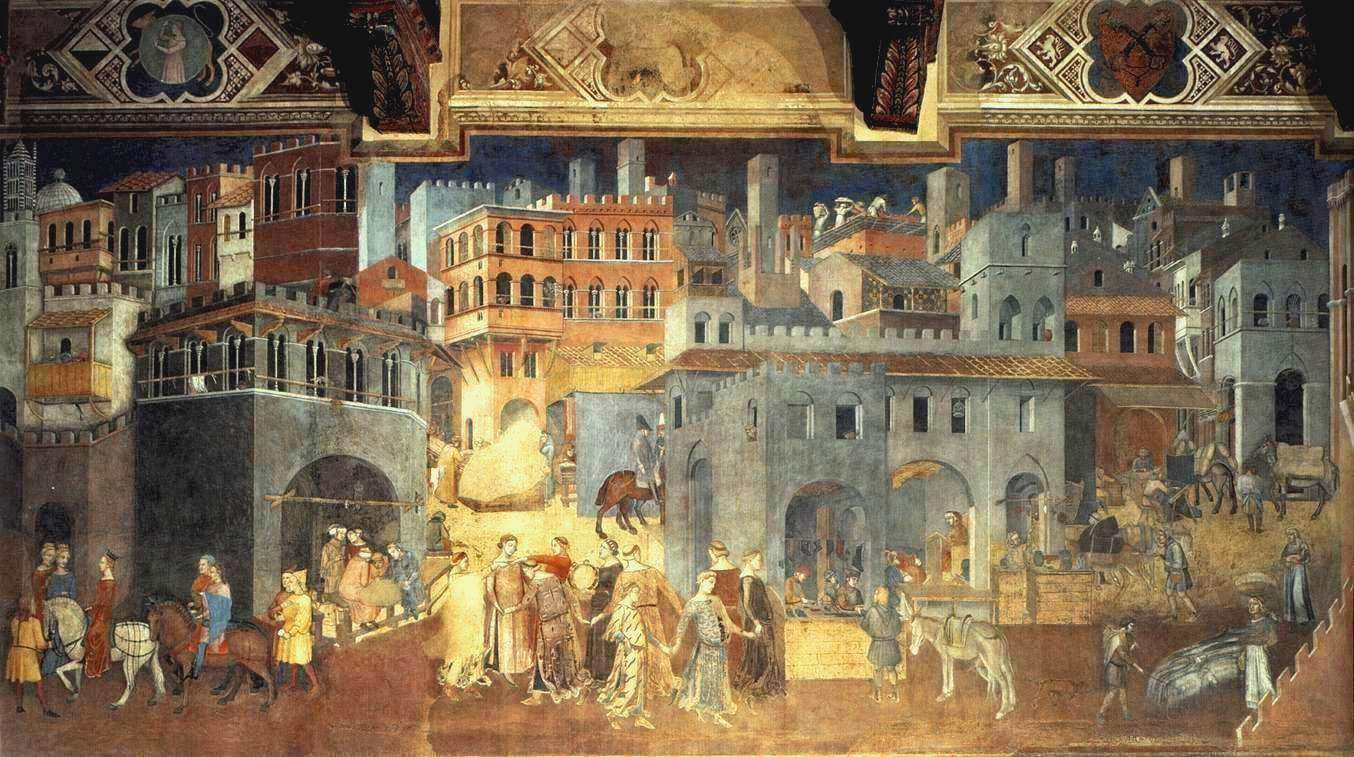It is to these years under Henry III that historians turn for the earliest signs of the major contribution of the English Middle Ages to the West—the development of Parliament. The word parliament comes from French and simply means a “talk” or “parley”—a conference of any kind. The word was applied in France to that part of the curia regis which acted as a court of justice.
In England during the thirteenth century, the word often refers to the assemblies summoned by the king, especially those that were to hear petitions for legal redress. In short, a parliament in England in the thirteenth century was much like the parlement in France—a session of the king’s large council acting as a court of justice.
The Norman kings made attendance at sessions of the great council compulsory; it was the king’s privilege, not his duty, to receive counsel, and it was the vassal’s duty, not his privilege, to offer it. But by requiring the barons to help govern England, the kings strengthened the assembly of vassals, the great council. The feeling gradually grew that the king must consult the council. Yet the kings generally consulted only the small council of their permanent advisers; the great council met only occasionally and when summoned by the king.
The barons who sat on the great council thus developed a sense of being excluded from the work of government in which they felt entitled to participate. It was baronial discontent that led to the troubles under Henry III. When the barons took over the government in 1258, they determined that the great council should meet three times a year, and they called it a parliament. When Henry III regained power, he continued to summon the feudal magnates to the great council, to parliament.
The increasing prosperity of England in the thirteenth century had enriched many members of the landed
gentry who were not necessarily the king’s direct vassals. The inhabitants of the towns had also increased in number and importance with the growth of trade. Representatives of these newly important classes in country and town now began to attend parliament at the king’s summons. They were the knights of the shire, two from each shire, and the burgesses of the towns.
Recent research has made it seem probable that the chief reason for the king’s summons to the shire and town representatives was his need for money. By the thirteenth century the sources of royal income were not enough to pay the king’s ever-mounting bills. Thus he was obliged, according to feudal custom, to ask for “gracious aids” from his vassals. These aids were in the form of percentages of personal property, and the vassals had to assent to their collection.
So large and so numerous were the aids that the king’s immediate vassals naturally collected what they could from their vassals to help make up the sums. Since these subvassals would contribute such a goodly part of the aid, they, too, came to feel that they should consent to the levies. The first occasion for which there is clear evidence of the king summoning subvassals for this purpose was the meeting of the great council in 1254.
The towns also came to feel that they should be consulted on taxes, since in practice they could often negotiate with the royal authorities for a reduction in the levy imposed on them. Burgesses of some towns were included for the first time in Simon de Montfort’s “Parliament” of 1265. Knights of the shire also attended this meeting because Simon apparently wanted to muster the widest possible support for his program. But only known supporters of Simon were invited to attend the Parliament.

